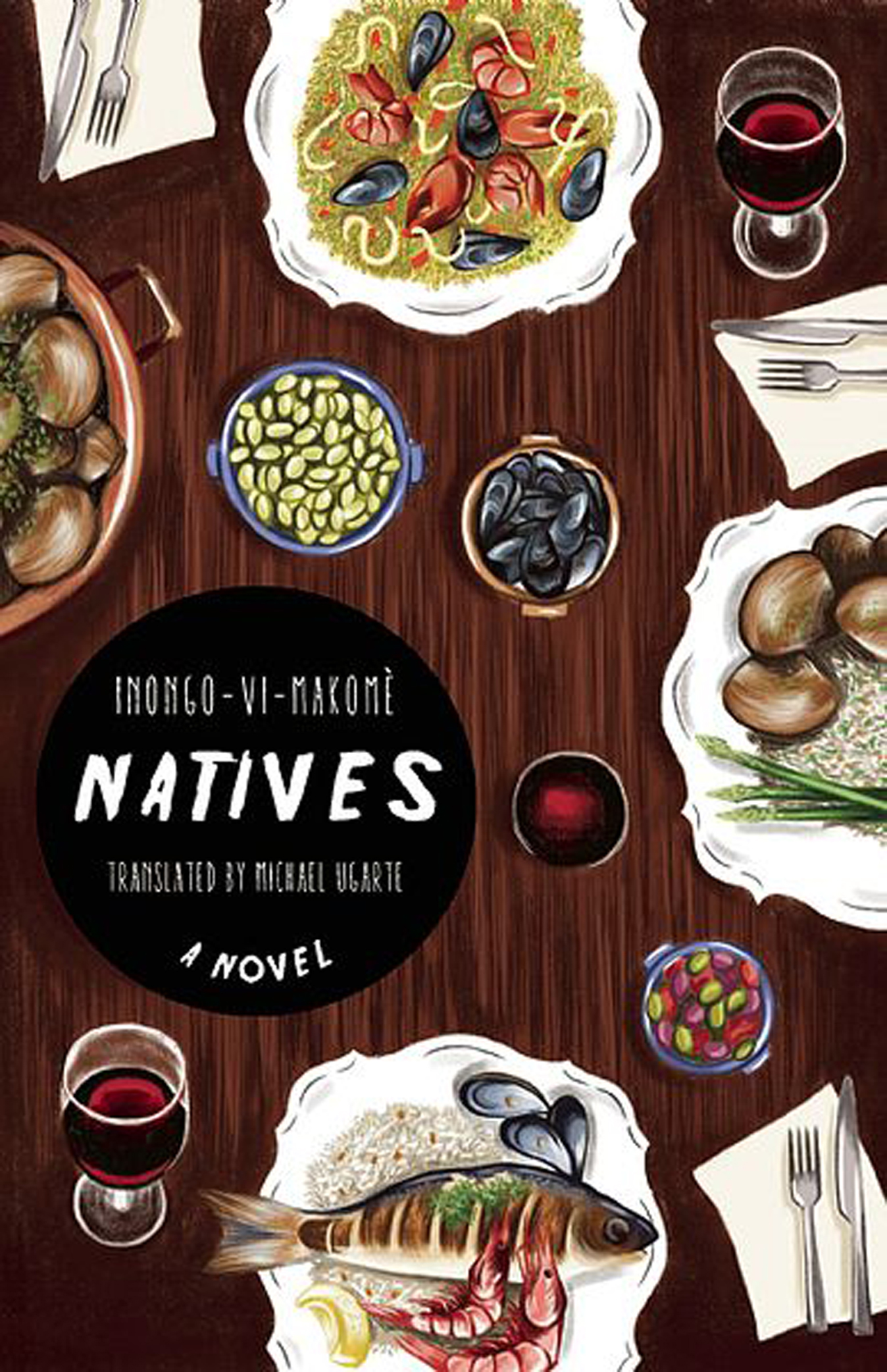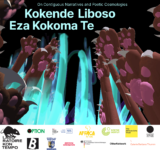The last few years have been exciting for Cameroonian writers. At the Frankfurt Book Fair in 2014, Random House signed a seven-figure deal for the North American rights to The Longings of Jende Jonga, a novel by Cameroonian writer Imbolo Mbue. The book, which will be available in August is now titled Behold the Dreamers.In 2015 Inongo-vi-Makomè’s English language debut, Natives, was published by Phoneme Media (the book was originally published in Spanish in 2008 as Nativas).
At some point in the Translator’s Afterword, Michael Ugarte (the translator) writes that “Natives is a novel one might call ‘half serious.’ But which half?” though a relevant question, it is nevertheless misleading, because this question exists due to the book’s erotic content, which is a central element of the book, given that sexually explicit scenes are in abundance in the novel. The translator’s question is misleading because it shifts the debate from the most relevant issue in the book, which is the politics of exile (and the callous treatment of immigrants in European countries), to the ‘half seriousness’ of the book because of its comic content and excessively explicit scenes.
Natives is the story of Bambara Keita, a homeless immigrant who is employed by two Catalan women: Montse and Roser, to satisfy them sexually. They are both in their forties and sexually frustrated. Montse, who is more outspoken and has never been married hatches the plan, whereas Roser, who is an introvert, reluctantly agrees. For Bambara Keita, this is a unique opportunity which turns his life and fortune around, not without several blows to his pride as he is constantly faced with choices between dignity and security, leading to one final choice which will determine his fate as an immigrant and the course of his life.
Natives is a very funny book. Indeed, the translator has a good point when he says that “it is precisely Inongo’s intention to make his readers think about the fine line between comedy and seriousness.” The way Inongo blurs this distinction is reminiscent of Alain Mabanckou and Mbella Sonne Dipoko, whose novels address pertinent issues with a good dose of comic writing.
The politics of exile, which lies at the heart of Natives, shows how some immigrants reinvent themselves as the leave their homelands, getting rid of their identity cards for fear of being discovered and repatriated. They are forced to assume new personalities by pretending to be who they are not as well as claiming to be from countries they are not.
Because he lacked a home country, the authorities had nowhere to deport him to, and they simply set him free on the streets of Barcelona [p 130]
If it had been difficult to assume the identity of another man, it was even more difficult to usurp that man’s nationality. He had to make lots of things up. He had never been to Mali. On his journey he had passed through Senegal, but he had never entered the county of that legendary wise man, Amadou Hampate Ba, or of the soccer star, Salif Keita [p 138]
Bambara Keita feels the weight and humiliation of abandoning his real identity to impersonate a Malian, because he wants to succeed in Europe (Spain) but he realizes that there are no jobs for immigrants. This gives way to mimicry, as Bambara Keita sacrifices his identity and cuts off contact with his family. Somewhere in the novel, an opportunity presents itself and Bambara Keita, with teary eyes reveals his true identity: I Gerald Essomba from Ebolowa, Cameroon, he says in broken English. He uses broken English or fragments of English whenever he speaks throughout the novel. This is problematic because it embraces the stereotype of the African immigrant. Later, when Bambara Keita reclaims his identity after telling the truth, he is referred to in the novel as Gerald Essomba, the ex-Bambara Keita. This naming highlights the hybrid identities African immigrants are forced to assume in Europe as they struggle to survive.
Indeed, Inogo plays with several stereotypes in his novel. The most obvious one is the size of the immigrant’s member, which shocks Roser:
“That!” She pointed at his member.
“You mean my bangala?” he asked, with a slight smile on his face.
“Holy God, I have never seen anything like that…”
No Worry, Roser. The girls in my village tell me my bangala very small.”
“Is that what the girls in your town tell you?” she asked incredulously.
“Yes, they say so, they laugh at me, they bad!”
“If they tell you that, they are not bad, they’re beasts. They’re not human!”
Back to the issue of Gerald Essomba, the ex-Bambara Keita’s language stereotype. There are several ways of looking at this: it is justifiable, given that not every Cameroonian can speak English fluently, especially those from French speaking Cameroon, but his language still poses a problem when we compare the way he speaks to his reflection and wisdom. Perhaps that is part of the main joke of the novel, as the translator suggests, that the upper class Catalan women are the real natives of the novel. They too are walking stereotypes and they are shocked when Bambara Keita occasionally makes decisions which sacrifice security for pride.
Inongo’s prose is beautiful (the translator as well deserves credit here) and it switches from comic to serious tone with the same ease that it changes from a monolingual to a multilingual text, combining English, Pidgin, Spanish and other languages. Some words are italicized— words native English speakers may not be used to, and this poses a problem. African writers should use languages without having to bastardize words native English speakers are unfamiliar with by italicizing them. As the saying goes, if you don’t know what it means, google it. More arguments on this can be found by reading Ikhide Ikheloa’s blog. Sadly, even words found in the dictionary are italicized, words like “fufu” among others.
Despite its shortcomings, Natives is a wonderful book which is extremely funny and entertaining, placing Inongo-vi-Makomè as a Cameroonian writer to lookout for and hope for many more English translations of his books.







Love the review.cant wait to read the book.sounds interesting…